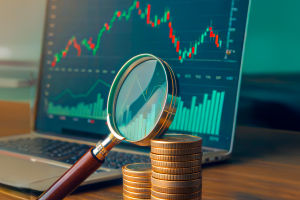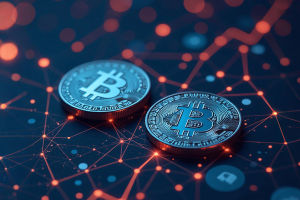We often hear about blockchain, but it can sound confusing or overly technical.
Simply put, blockchain is a type of digital record-keeping system. Instead of storing information in one place, it stores data across many computers—making it much harder to change, delete, or hack.
Every time we add new data, it becomes part of a "chain" of records, all linked together securely.
Think of it like a shared notebook that everyone can see, but no one can erase or secretly edit. That's what makes blockchain trustworthy.
How is it different from the traditional internet?
In today's internet, most of our information goes through central platforms or companies. For example, when we post photos, buy products, or log into a website, those actions are controlled by specific platforms. They store our data, decide how it's used, and sometimes even change it without us knowing.
Blockchain offers a decentralized model. This means no single company or server has full control. Instead, everyone involved has access to the same version of the data, and no one can change it unless the whole network agrees. This brings more transparency and security.
Blockchain applications we already see
Many of us may have already heard of cryptocurrency, like Bitcoin. That's one of the earliest uses of blockchain—but it's just the beginning. Other growing applications include:
• Digital identity: Using blockchain to store personal IDs securely
• Smart contracts: Agreements that run automatically without middlemen
• Supply chain tracking: Making sure products are real and safely transported
• Voting systems: Making elections more transparent and tamper-proof
• Online payments: Faster transactions with lower fees
These tools are being tested and used in industries like finance, healthcare, education, and even entertainment.
How blockchain can change the future internet
The internet we use today is convenient, but it also has problems—privacy leaks, fake news, and over-centralization. Blockchain could offer solutions by:
• Protecting user data: Instead of handing our personal information to apps or websites, we could keep control of it ourselves
• Creating trust online: Every change or transaction is recorded and visible, so no one can cheat or lie easily
• Reducing fake content: News, reviews, and digital files can be verified through blockchain to make sure they're authentic
• Building Web3: A new version of the internet where users—not just large platforms—own and profit from their online activities
With blockchain, the future internet could be safer, fairer, and more open.
What challenges still remain?
Like any new technology, blockchain isn't perfect. There are still some issues to work on:
• Energy usage: Some blockchain networks use a lot of power, though greener solutions are being developed
• Speed and cost: Processing transactions can be slow or expensive on certain platforms
• User understanding: Many people still don't fully understand how it works or how to use it safely
• Regulations: Different countries have different rules, which creates uncertainty for global adoption
Still, with constant progress, these challenges are being addressed one by one.
Will blockchain become part of our daily life?
Yes—slowly but surely. We may already be using blockchain-based services without realizing it. From online games with digital rewards to apps that store health records securely, blockchain is gradually becoming part of how we live and work online.
In the future, things like digital ownership, online privacy, and transparent payments may all depend on blockchain. Just like how the internet changed our world in the past two decades, blockchain could be the next big leap.
Let's stay curious and informed
Lykkers, blockchain may sound complicated at first, but it's a powerful tool that could shape the future of the internet we all use daily. Whether you're a student, a small business owner, or just a curious reader, understanding this technology gives us a glimpse into what's coming next. Have you ever used a blockchain-based app or game? Let us know—we'd love to hear how you're exploring the digital future!


